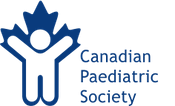When a baby is born exposed to opioids - New recommendations on caring for the youngest patients affected by a public health crisis
OTTAWA – As the number of babies born exposed to opioids mounts, the Canadian Paediatric Society (CPS) is releasing new recommendations to help minimize the impact on both newborns and their mothers.
In a guidance document for health professionals, the CPS says keeping babies and mothers together is essential in both the short and long term.
“Weeks of separation can be harmful to early bonding and attachment, and risks making a bad situation worse for both mothers and their babies,” said Dr. Thierry Lacaze, Chair of the CPS Fetus and Newborn Committee. “Keeping mothers and their infants together has been shown to lower NICU admissions, promote breastfeeding, shorten hospital stays and decrease the need for prescription drugs.”
According to the Canadian Institute for Health Information, in 2016-2017, about 1,850 newborns were born exposed to addictive drugs, a condition known as Neonatal Abstinence Syndrome. This represents a 27 per cent increase from 2012-2013. A large percentage of these cases are attributed to opioid withdrawal. Fifty to 75 per cent of infants born to women on opioids will need treatment for withdrawal. Symptoms of opioid withdrawal—which can include trembling, crying, tight muscle tone, seizures, yawning, stuffy nose, and sneezing—usually appear in the first few days after birth. Other effects, such as irritability, sleep disorders and feeding problems, can last for four to six months.
The CPS recommends that newborns exposed to opioids be observed for at least 72 hours after delivery and assessed to determine whether additional monitoring and medication are needed. Once newborns are ready for discharge, a well-coordinated plan involving a team of health care professionals is essential to ensure that once they are home, the babies continue to sleep and eat well, gain weight, and adapt to their environment. This includes community resources to support keeping infants and their mothers together, long after they leave hospital.
“Early intervention is critical in order to ensure the best possible health outcomes for newborns and their mothers, both during their stay in the hospital and long after they arrive home,” said Dr. Lacaze.
-30-
Dr. Thierry Lacaze is a professor in the Department of Paediatrics and a member of the Alberta Children’s Hospital Research Institute, Cumming School of Medicine, University of Calgary.
Related Links
About the Canadian Paediatric Society
The Canadian Paediatric Society is a national advocacy association that promotes the health needs of children and youth. Founded in 1922, the CPS represents nearly 4,000 paediatricians, paediatric subspecialists and other child health professionals across Canada.
Last updated: Feb 8, 2018
